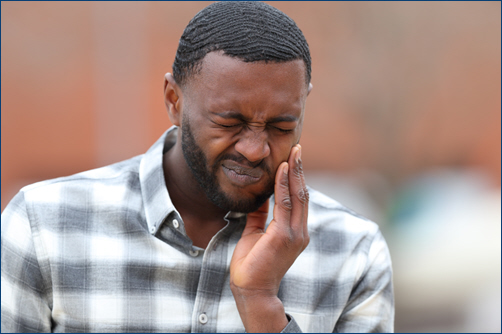Do You Need a Mouth Guard for Nighttime Grinding?
Nighttime teeth grinding, known as bruxism, often goes unnoticed until damage occurs. Symptoms like morning headaches, jaw soreness, or worn-down teeth signal the problem. Mouth guards provide a simple, effective solution for protecting teeth and reducing discomfort.
Signs You May Need a Mouth Guard
Patients who grind at night often wake with sore jaws or notice flat, chipped, or sensitive teeth. Some experience frequent headaches or earaches. Loved ones may hear grinding sounds during sleep. Left untreated, bruxism leads to fractures, enamel loss, and gum recession. A dentist’s evaluation confirms whether a mouth guard is necessary.
Types of Mouth Guards Available
 Dentists offer custom-made mouth guards tailored to each patient. These fit comfortably, stay in place, and provide maximum protection. Over-the-counter guards are cheaper but less durable and often uncomfortable. Some guards cover the upper teeth, while others protect both arches. Dentists recommend the best style based on grinding severity and patient comfort.
Dentists offer custom-made mouth guards tailored to each patient. These fit comfortably, stay in place, and provide maximum protection. Over-the-counter guards are cheaper but less durable and often uncomfortable. Some guards cover the upper teeth, while others protect both arches. Dentists recommend the best style based on grinding severity and patient comfort.
Benefits Beyond Tooth Protection
Mouth guards do more than prevent tooth damage. They also reduce jaw tension, minimizing headaches and TMJ discomfort. By absorbing grinding forces, guards protect both enamel and dental restorations like crowns or fillings. Patients often sleep better knowing their teeth and jaws are protected.
Caring for Your Mouth Guard
Proper cleaning extends a guard’s life. Rinse it with cool water after use and brush gently with a soft toothbrush. Avoid hot water, which warps the material. Store the guard in a ventilated case to prevent bacteria buildup. Replace it if cracks or wear appear, typically every one to two years.
A mouth guard offers reliable protection against nighttime grinding. By reducing strain, preventing tooth damage, and improving sleep quality, it’s a small investment with long-term benefits. Consulting your dentist ensures you choose the best solution for your needs.



 Jaw Clenching and Teeth Grinding: One of the most prevalent causes of TMJ disorders is jaw clenching and teeth grinding, often resulting from stress or anxiety. These habits place excessive pressure on the TMJ, leading to pain and inflammation. Bruxism can occur during the day or night, exacerbating TMJ symptoms.
Jaw Clenching and Teeth Grinding: One of the most prevalent causes of TMJ disorders is jaw clenching and teeth grinding, often resulting from stress or anxiety. These habits place excessive pressure on the TMJ, leading to pain and inflammation. Bruxism can occur during the day or night, exacerbating TMJ symptoms.